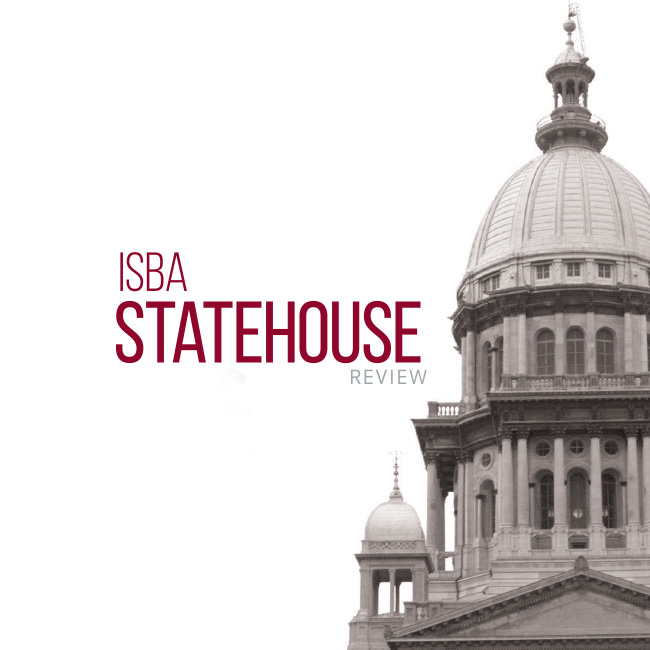ISBA Statehouse Review for June 26, 2019

ISBA Director of Legislative Affairs Jim Covington reviews legislation in Springfield of interest to ISBA members. This week he covers toxic torts, the Consumer Fraud and Deceptive Business Practices Act, special interrogatory, the Equal Pay Act of 2003, and the Cannabis Regulation and Tax Act.
Toxic torts. Public Act 101-6 (Sims, D-Chicago; Hoffman, D-Belleville) permits civil litigation by victims of exposure to toxic substances in the workplace who are diagnosed with latent diseases after the 25-year time bar imposed by the Workers’ Compensation Act and Occupational Diseases Act. It legislatively overrules Folta v. Ferro Engineering, 2015 IL 118070.
Effective May 17.
Consumer Fraud and Deceptive Business Practices Act. Public Act 101-25 (Burke, D-Oak Lawn; Link, D-Gurnee) specifically exempts from the Act the manufacture, distribution, or sale of a product or service that causes or contributes to cause bodily injury, death, or property damage regardless of whether it was authorized by a regulatory body.
Effective June 21.
Special interrogatory. House Bill 2233 (Thapedi, D-Chicago; Mulroe, D-Chicago) amends the special interrogatory provision in the Code of Civil Procedure to do the following: (1) Makes it discretionary with the court on whether to give a special interrogatory if requested by any party. It is now mandatory if any party requests. (2) The appellate standard to review a trial court’s decision on whether to give a special interrogatory is abuse of discretion. (3) If a special finding of fact is inconsistent with the general verdict, the court is required to direct the jury to further consider its answer and verdict. If the jury can’t render a general verdict consistent with the special finding, the court must order a new trial. (4) During closing argument, the parties are allowed to explain to the jury what may result if the general verdict is inconsistent with any special finding.
Passed both chambers and will take effect immediately and will apply to trials commencing on or after Jan. 1, 2020.
The Equal Pay Act of 2003. House Bill 834 (Moeller, D-Elgin; Castro, D-Elgin) makes it unlawful for an employer to require an employee to sign a contract or waiver that would prohibit the employee from disclosing or discussing information about the employee’s wages, salary, benefits, or other compensation. It also makes it unlawful for an employer to seek the wage or salary history, including benefits or other compensation, of a job applicant from any current or former employer with exceptions if it is a matter of public record or if the job applicant is a current employee and is applying for a position with the same current employer. Makes other changes.
Passed both chambers and will take effect 60 days after it becomes law (March 1, 2020).
The Cannabis Regulation and Tax Act. Public Act 101-27 (Cassidy, D-Chicago; Steans, D-Chicago) decriminalizes possession of small amounts of cannabis and replaces it with a tax and regulation system. A resident of Illinois (21 or older) may purchase cannabis products and possess 30 grams of cannabis flower, no more than 500 mg of THC in cannabis-infused product, and five grams of cannabis concentrate. It creates an automatic expungement through the governor’s clemency process for convictions up to 30 grams. For amounts of 30-500 grams, the state’s attorney or the individual can petition the court to vacate the conviction. Makes other changes.
Effective Jan. 1, 2020.

